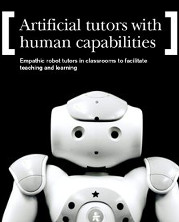|
Home
|
Jul 31, 2017
This week’s themePlaces that became verbs This week’s words birminghamize barbados solecize locarnize debunk 
Artificial tutors with human capabilities from the
University of Birmingham
(permalink)
A.Word.A.Day
with Anu GargIn the late 19th century, men were often kidnapped to work on ships. Google hadn’t been born yet, so the innovation of paying attractive wages and onsite massages was still in the future. That left drugging and kidnapping as the most common HR technique for acquiring talent on a ship. Since China was often the destination for these ships, Shanghai became a verb, meaning to recruit forcibly. (The name Shanghai literally means upon-the-sea). Shanghai may be the best-known example of a place name turning into a verb, but there are many such words in the English language. A few weeks back, we met people who became verbs in the English language. This week, let’s visit places that became verbs. If your city, village, state, or country were to become a verb, how would you define it? Share it below or email us at words@wordsmith.org. birminghamize
PRONUNCIATION:
MEANING:
verb tr.: To render artificial.
ETYMOLOGY:
After Birmingham, UK, where counterfeit coins were produced in the 17th
century. Another word with a similar sense has formed from the corruption
of the name Birmingham: brummagem.
Earliest documented use: 1856.
NOTES:
True to their name, in Birmingham, they have artificial grass,
artificial body parts,
artificial collections,
and even colleges offering degrees in artificial intelligence.
USAGE:
“The manners and customs of society are artificial -- made-up men with
made-up manners -- and thus the whole is Birminghamized.” Ralph Waldo Emerson; English Traits; 1856. A THOUGHT FOR TODAY:
It takes a great deal of bravery to stand up to our enemies, but just as
much to stand up to our friends. -J.K. Rowling, author (b. 31 Jul 1965)
|
|
Subscriber Services
Awards | Stats | Links | Privacy Policy
Contribute | Advertise
Awards | Stats | Links | Privacy Policy
Contribute | Advertise
© 1994-2026 Wordsmith